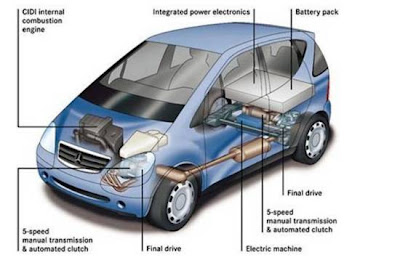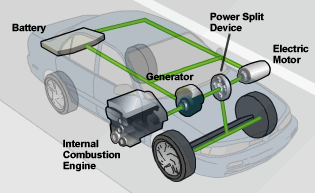
Seven Myths About Hybrid Cars
If you are considering a hybrid vehicle, you might be hearing quite a bit of talk. Some people think the hybrid car is the greatest thing on the market. Some people say this shall just simply pass. Other people say they think they can save a lot of money, but you are maybe not sure it is really worth it. What is the truth, and how do you separate myth from fact with all of the stuff that is being thrown at you? Here are 7 of those common hybrid car myths, you may or may not have heard about.
1. Hybrid cars are the same as electric cars
This is not true because hybrid vehicles are fuel-powered for the most part. They have what are called battery assists. The assist is powered by a nickel-metal hydride battery pack that is rechargeable.
2. You are guaranteed to save money with a hybrid.
If you are doing city driving, you may save gas and you may not. The same goes for highway driving. There are just too many different factors. It has been stated that if everyone bought hybrid vehicles, the gas consumption would decrease by only 10%, that is not a very big difference.
3. A hybrid cars battery can run out
A hybrid vehicle's battery should not run out while you are driving it. The engine does not idle when stopped as when a regular vehicle does when you are stopped at a red light. What does it do instead? It recharges its battery. So there is no need to worry about it stopping on you.
4. The hybrid cars rechargeable battery only lasts for 2 years
A hybrid definitely would not be worth purchasing if this was truly the case. The rechargeable batteries usually come with an eight-year warranty.
5. If I run out of gas, I can keep driving on the hybrid car battery
Keep in mind, a hybrid car's battery is an assist only. This means that it still runs on fuel. After you run out of gas, the battery may well keep the car running for just a little while only. But, the car will stop very soon.
6. Hybrid vehicles will soon put conventional car sellers out of business
This probably will not occur anytime soon. The reason for the delay has to do with the hefty price tag on a hybrid vehicle. Many people simply cannot afford one. Furthermore, people just are not too sure whether or not they will really save money on a hybrid vehicle. As a result, they are slow to join the rush of people who want a hybrid.
7. Hybrids will only save you about 88 dollars a year
I did hear something on the news about this once, but it may not be true. It went something like this, if there is something you desperately want and there is a lot of smoke surrounding it, you merely have to begin digging and do some of your own research. There are many different models of hybrid cars, and numerous different manufacturers make them. This means that there could be many more variables involved than the ones outlined here. A hybrid car might help you, and it might not, but the final decision is up to you
how hybrid cars work
Hybrid-electric vehicles (HEVs) combine the benefits of gasoline engines and electric motors and can be configured to obtain different objectives, such as improved fuel economy, increased power, or additional auxiliary power for electronic devices and power tools.
 Diagram of full hybrid vehicle components, including (1) an internal combustion engine, (2) an electric motor, (3) a generator, (4) a power split device, and (5) a high-capacity battery.
Diagram of full hybrid vehicle components, including (1) an internal combustion engine, (2) an electric motor, (3) a generator, (4) a power split device, and (5) a high-capacity battery.Flash Animation: How Hybrids Work
Requires Flash 6.0 or higher.
HTML Version: How Hybrids Work
Some of the advanced technologies typically used by hybrids include
Regenerative Braking. The electric motor applies resistance to the drivetrain causing the wheels to slow down. In return, the energy from the wheels turns the motor, which functions as a generator, converting energy normally wasted during coasting and braking into electricity, which is stored in a battery until needed by the electric motor.
Electric Motor Drive/Assist. The electric motor provides additional power to assist the engine in accelerating, passing, or hill climbing. This allows a smaller, more efficient engine to be used. In some vehicles, the motor alone provides power for low-speed driving conditions where internal combustion engines are least efficient.
Automatic Start/Shutoff. Automatically shuts off the engine when the vehicle comes to a stop and restarts it when the accelerator is pressed. This prevents wasted energy from idling.
No comments:
Post a Comment